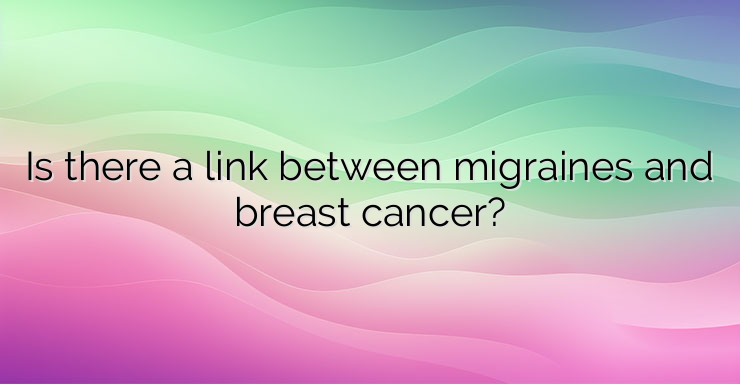About 14-15% of the world’s population suffers from migraine, a neurological disorder that causes severe headaches and other symptoms that can negatively affect lifestyle. Previous studies have shown that people who have migraine attacks are more likely to develop other conditions, such as stroke, high blood pressure, epilepsy, tinnitus, irritable bowel syndrome. In addition, previous research has found that people who experience migraine headaches may also have an increased risk of developing certain types of cancer, including breast cancer. Researchers at the Oncology Center at West China Hospital of Sichuan University in China have identified a possible genetic link between migraines and breast cancer. Migraine attacks are characterized by a severe headache that can cause throbbing usually in one particular area or side of the head. An attack can last from several hours to several days. Due to its intensity, migraine headaches are usually accompanied by nausea, vomiting and very high sensitivity to light and sound. Migraine attacks occur in stages, each stage associated with certain symptoms. Before the attack, a person may experience mood swings, dizziness, thirst, or sensitivity to light and sound. About 25% of people with migraines experience the so-called aura stage, characterized by disturbances affecting vision, speech and sensory sensations. The headache stage of a migraine attack is identified by pain on one or both sides of the head. After the headache comes symptoms that include fatigue, dizziness, difficulty concentrating, body aches, feeling depressed. Due to the severity and duration of symptoms, migraines can have a profoundly negative impact on a person’s daily life. Both migraines and breast cancer are linked to changes in estrogen levels, high estrogen levels increase the risk of breast cancer. Additionally, the severity and frequency of migraine attacks in women can be affected by changing estrogen levels during the menstrual cycle, menopause, or pregnancy. Over the past few years, there have been a number of studies looking at the potential link between migraines and breast cancer. However, the results are mixed. In the new study, researchers collected genome-wide data on both people with migraines and those with breast cancer. Migraine genetic data were drawn from several studies and included more than 102,000 people with migraine and more than 771,000 controls. Breast cancer genetic data is obtained from the Breast Cancer Consortium (BCAC) and includes about 250,000 different cases. The scientists used a randomized Mendelian analysis to look for a cause-and-effect relationship between migraines and breast cancer. In the conclusion of the study, the researchers report,that women with any type of migraine have an increased risk of developing breast cancer and estrogen receptor (ER) positive breast cancer. They also found that women who had migraine headaches without aura had an increased risk of estrogen-negative breast cancer, presumably linked to an increased risk of breast cancer in general. The study is presented in the journal BMC Cancer. References: https://0-bmccancer-biomedcentral-com.brum.beds.ac.uk/articles/10.1186/s12885-023-11337-9 https://www.nature.com/articles/s41582-022-00763 -1 https://www.ncbi.nlm.nih.gov/pmc/articles/PMC7279194/ https://www.ncbi.nlm.nih.gov/pmc/articles/PMC6026578/ https://www.ncbi. nlm.nih.gov/pmc/articles/PMC5411172/ https://pubmed.ncbi.nlm.nih.gov/36459425/ https://www.ncbi.nlm.nih.gov/pmc/articles/PMC8789428/ https: //pubmed.ncbi.nlm.nih.gov/35041219/


Leave a Reply